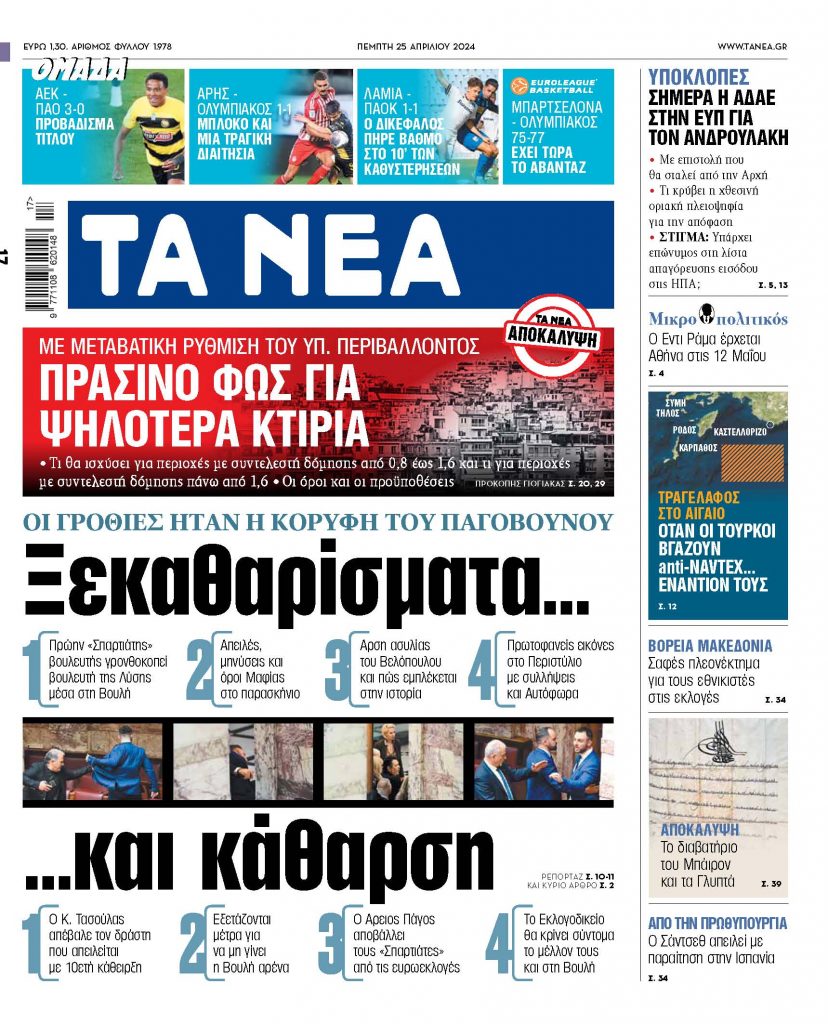The way Greek society perceives the international environment and evaluates national strategic priorities was at the center of the research conducted by Metron Analysis on behalf of the Circle of Ideas.
This poll captured the opinions of Greeks on current affairs issues, including a possible nuclear threat, the open conflict of liberal democracy with authoritarianism and totalitarianism, the energy crisis, inflation, the prospect of a recession, the change of monetary policy by raising interest rates and ending quantitative easing, the worsening of the climate crisis, the pandemic, the disruption of the supply chain, the dysfunction of the UN Security Council, but also the foci of crisis from the war in Ukraine.
The issues that concern citizens
As reflected in the research, 96% of the respondents consider the accuracy and adequacy of income as a very or fairly serious issue. Wiretapping, on the other hand, is at the other extreme with 66% of respondents rating it as a very or fairly serious issue.
Life satisfaction
The average Life Satisfaction value for Greeks is 5.8 showing a significant decline from 6.2 in 2017.
Correlation of life satisfaction with sense of security
In any event the correlation of life satisfaction to a sense of security is high with the latter registering 5.5
The demand for freedom returns
While respondents agreed that freedom and security are both important, they preferred freedom by 65% as against 31% for security
How are the phenomena of political authoritarianism evaluated?
Greeks rate the phenomena of political authoritarianism negatively, especially in Turkey (seen as most authoritarian) China and Russia. Oddly 31% of respondents saw the US as embodying such phenomena.
The majority of Greeks are against Russia
A clear-cut 71% of Greeks are against Russia, especially as pertains to the war in Ukraine.
Strong desire for the EU to change attitude towards Russia
However, despite being against Russia, 71% of respondents want the EU to change its stance vis-à-vis Russia.
Wiretapping
As far as wiretapping is concerned, in light of the wiretapping scandal involving the head of KINAL-PASOK, the majority of respondents attribute responsibility to the prime minister for the monitoring of Mr. Androulakis’ phone by the National Intelligence Agency-EYP.
Prime Ministerial powers
At the same time, 56% of respondents say that the prime minister has amassed excessive powers under his office, as opposed to 34% who disagree.
Autonomous Governments or Coalition Governments
On the question of the formation of governments, 49% of respondents are in favor of an autonomous government, while 47% are in favor of coalition governments.
Party confidence is at low levels
Identification with a political party is limited to 31%

